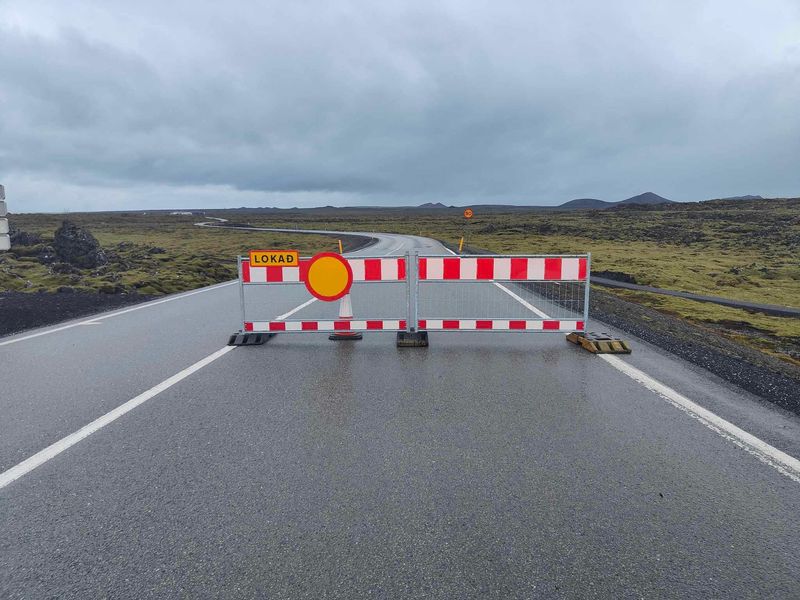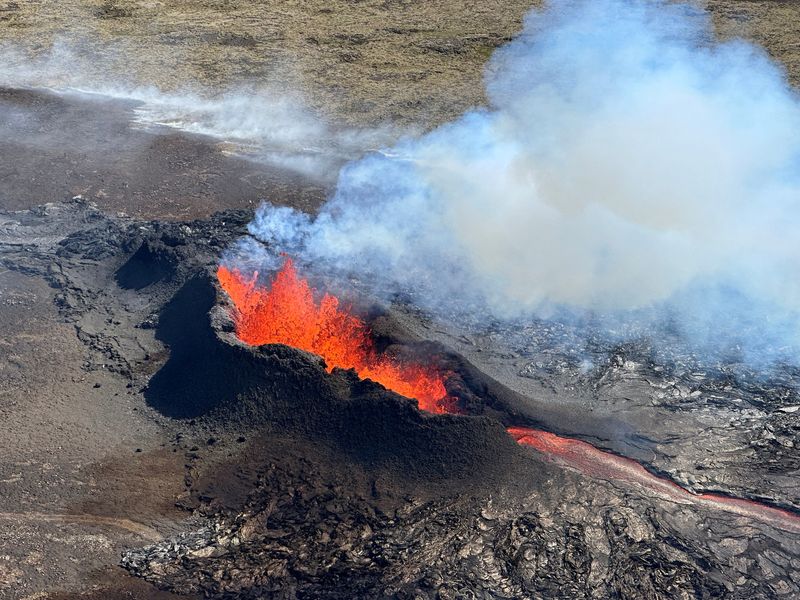By Jacob Gronholt-Pedersen
COPENHAGEN (Reuters) -Icelandic authorities said on Saturday they were preparing for a volcanic eruption in the southwest of the island in the coming days after a series of earthquakes and evidence of magma spreading rapidly underground.
The Icelandic Meteorological Office said there was a "considerable" risk of an eruption on or just off the Reykjanes peninsula because of the size of the underground magma intrusion and the rate at which it was moving.
"The probability of an eruption has increased since this morning and an eruption could start at any time in the next few days," it said in a statement.
Iceland's Civil Protection Agency overnight ordered a complete evacuation of Grindavik, a fishing town of around 3,000 residents.
The Reykjanes region has seen several eruptions in unpopulated areas in recent years. The latest is expected to begin on the seabed just southwest of Grindavik, the meteorological office said.
A tunnel of magma, or molten rock, that extends northeast across Grindavik and some 10 km further inland, was estimated late on Saturday at a depth of less than 800 metres, compared with 1,500 m earlier in the day, the office said.
On Thursday, increased seismic activity prompted the closure of the Blue Lagoon geothermal spa, one of Iceland's main tourist attractions.
Reykjanes is a volcanic and seismic hot spot southwest of the capital Reykjavik. In March 2021, lava fountains erupted spectacularly from a fissure in the ground measuring between 500 750 metres long in the region's Fagradalsfjall volcanic system.

Volcanic activity in the area continued for six months that year, prompting thousands of Icelanders and tourists to visit the scene. In August 2022, a three-week eruption happened in the same area, followed by another in July of this year.
The Fagradalsfjall system, which is around 6 km wide and 19 km long, had remained inactive for more than 6,000 years prior to the recent eruptions.
